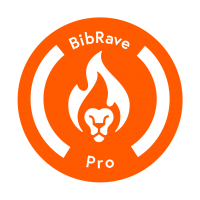Practical Tips for Starting and Maintaining Recovery with Support Groups
Posted on Aug 18, 2024 under Random | Comments are offKey Takeaways:
- Support groups can significantly aid recovery by providing a sense of community and shared experiences.
- Choosing the right support group tailored to individual needs is crucial for long-term success.
- Consistency and active participation in group meetings enhance the effectiveness of the recovery journey.
Start and maintain recovery by joining support groups for shared experiences and accountability. Attend meetings regularly, actively participate, and build connections with members. Utilize group advice for coping strategies and goal setting. Stay committed to the process, seek additional resources, and leverage group support to sustain long-term sobriety.
Introduction
Recovering from addiction may be challenging, but it can also bring significant personal satisfaction. The transformative role that support groups can play in this journey cannot be overstated. Finding an AA group near me can offer the sense of community and shared experiences necessary for a successful and sustained recovery. This post offers helpful advice on beginning and continuing your recovery process with support from support groups.
Benefits of Support Groups in Recovery
Support groups provide emotional support, shared struggles, and accountability, making them crucial for those attempting to overcome addiction. They offer various benefits, making them an essential tool in recovery.
Emotional Support
Emotional support is one of the most immediate benefits of joining a support group. Knowing that others understand what you are going through can be incredibly comforting. Members often find solace in sharing their stories and hearing others, which reduces feelings of isolation and loneliness.
Shared Experiences
Sharing experiences within a group provides a valuable resource for learning from others’ experiences, offering new perspectives and strategies for dealing with challenges.
Accountability
Accountability and peer support are key motivators in addiction recovery. They help build routines and maintain commitment. The National Center for Biotechnology Information emphasizes the importance of mutual aid in overcoming addiction.
Choosing the Right Support Group
Finding a support group that shares your ideals and needs is critical. The right group can make a significant difference in your recovery journey, serving as a solid foundation to build your sobriety. Here are some tips on finding the right support group for you.
Identify Your Needs
Evaluating what type of support you need is the first step. Are you looking for a support group that focuses on a specific addiction, like alcohol or drugs, or do you prefer a more general support system? Identifying these needs can help you zero in on the type of group that will benefit you most.
Check Practical Aspects
Selecting a support group involves considering practical factors like meeting times, location, structure, logistics for regular attendance, group size, and preference for discussion settings for adequate recovery.
Consistency is Key
One of the most essential elements of an influential support group is consistency. Regular attendance and active participation can create a sense of routine and normalcy, aiding recovery.
Set a Schedule
Establishing a set schedule for attending meetings can significantly contribute to your recovery. Make it a non-negotiable part of your week, just like any other necessary appointment. This regularity helps you form habits that contribute positively to your recovery.
Engage Actively
Active engagement during meetings makes you more invested in the process. Participate in conversations, express your ideas, and show others your willingness to listen. This active participation benefits you and adds value to the group, creating a strong sense of community.
Follow Up
Keeping in touch with group members outside of sessions can bring further levels of responsibility and support. Follow-up calls or messages can help you and others stay on track, providing extra encouragement and support.
Participating Actively
Active participation is not just about attending meetings; it’s about being fully present and involved. Truly engaging with the group can magnify the benefits you receive, enriching your recovery process.
Share Your Story
Sharing your own experiences can be profoundly empowering, both for you and for others. Your story might resonate with someone else going through similar struggles, providing them the encouragement they need to persevere. By opening up, you contribute to the collective wisdom of the group.
Offer Support
Being a source of support for others can be mutually beneficial. Listening to others’ stories and offering advice or empathy can strengthen your resolve. It turns the recovery process into a collaborative effort, enhancing the social bonds within the group.
Additional Resources and Tools
Don’t limit yourself to just physical meetings. Numerous online resources and tools can augment the support you receive from your group.
Online Communities
Online communities like Reddit recovery subreddits offer anonymity, diverse perspectives, and a wealth of information for around-the-clock engagement, making them valuable information and support resources.
Literature and Programs
Exploring books, podcasts, and online programs dedicated to recovery can also deepen your understanding and provide new strategies for overcoming addiction. The more resources you draw from, the better equipped you will be to withstand the ups and downs of the healing process.
Seeking Professional Help
While support groups are invaluable, professional help can sometimes be necessary. Healthcare providers can offer a personalized and comprehensive recovery plan that may include therapy and medication.
Consult Healthcare Providers
Medical professionals can evaluate your specific needs and create a tailored treatment plan. Their expertise can provide you with structured guidance and medical interventions if required. You may track your progress and modify your rehabilitation strategy with the support of regular consultations.
Consider Rehab Services
Professional rehabilitation services might be the best course of action in more severe cases. These centers offer an intensive and focused environment where you can receive comprehensive care. Long-term or short-term stays in such facilities can provide a structured environment for adequate recovery.
Conclusion
Support groups offer direction, stability, and active engagement, which can significantly improve healing. It is crucial to utilize resources and seek professional help when needed. Recovery is a collaborative effort, and with proper support, lasting sobriety can be achieved.






